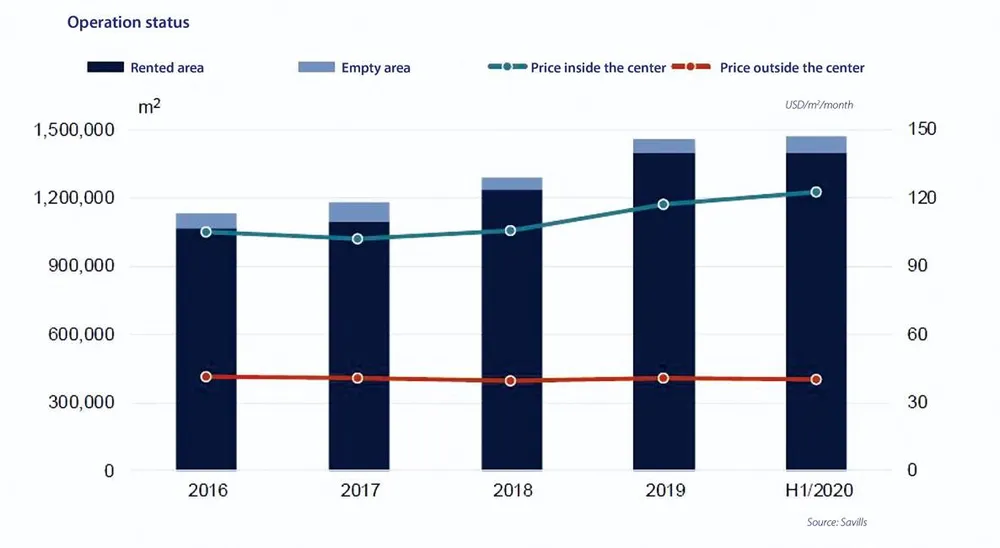
During the lockdown and social distancing phase in Ho Chi Minh City, monthly retail sales were at 20% growth in May and 5% in June. Accommodation and catering services increased sharply by 80% in May and 42% in June, while retail sales of goods increased only 12% in May and 3% in June.
Average asking rent in the retail segment decreased slightly by 1% QoQ, but was stable by YoY. In order to support tenants affected during the lockdown period, many landlords reduced their rents by upto 30% in April and May. When shoppers emerged back in June, several malls offered a 15% discount or reduced service charge.
In the City central areas, many dining and fashion chains in prime locations were forced to close. Numerous properties in the central parts of the City that depended on foreign tourists, such as Ly Tu Trong and Dong Khoi Street in District 1, have had to temporarily shut operations, or return business space back to owner. Due to strict restrictions on travel between countries, areas such as the densely populated Korean neighborhoods in district 7 have been badly affected. Many affluent Korean people come to Vietnam to work and live. Areas around Tan Phong Ward in Phu My Hung were once ideal retail outlets for residents with high income and a high standard of living.
Ms. Tran Thi Thu Ha, in charge of retail sales at Savills Vietnam, said the average rent in Tan Phong Ward in Phu My Hung is lower than in the center of district 1 or 3. Since the outbreak of the Covid-19 pandemic, and the border closure between many countries, many foreign experts have been unable to return to Vietnam to resume work. The pandemic has also tightened consumer spending, and therefore causing a serious decline in sales.
According to Ms. Ha, before the pandemic broke out, occupancy rate in retail real estate was as high as 95%, but now has fallen to about 40%, especially in city areas. Therefore, reducing rent for tenants will be one way to address this shortfall, not only in District 7, but for tenants across the city. However, landlords will have to consider very carefully how much discount to offer and for how long a period they can maintain a lower rental fee.
Although the Covid-19 pandemic has adversely affected many business segments, essential commodities such as necessities for domestic use and health care products have provided hope for growth and further development.




















